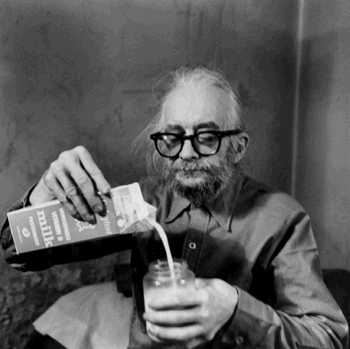Sunday, January 22, 2012
Oh, the Semblance of Sanity
Dictionary.com defines “reality” as “the state or quality of being real.” The site then goes on to define “real” as “something that actually exists.” In truth, there aren't many things on this earth that are objectively, positively, materialistically, singularly, real or in a state of verifiable existence. Ultimately, what people generally perceive as reality has been, to some extent, demolished. A state of existence, any state of existence, remains purely subjective and relative. One person's reality can completely differ from another person's reality. The reality of a young Somalian boy does not in any way resemble that of a middle-aged white man from Boston. So we must accept that reality takes many forms at the same time, or that reality does not exist in the previously established context. Einstein proved, or appeared to prove, all this through his research and discovery of relativity. Soon things that were always considered materialistic and verifiable were dismissed as toys of perception, such as space and time. This now applies to the entirety of the universe. By disproving, or putting into question, this one aspect of so-called reality, we must now learn to deny or question anything that was implicitly acknowledged as reality. If existence is based on the principle of experience and all that can be measured by the senses, then reality cannot exist. How do we know we are experiencing what we are experiencing? Descartes' age-old aphorism “I think, therefore I am” holds little to no validity. According to the principles of science, observation, and rational thinking, descended from the Enlightenment, it should be “I think, therefore I think.” Despite it's Yogi Berra-like appearance, I still believe this sentiment holds value. The only proof in thinking is that you thought you had a thought at one point in time that may or may not have existed in reality. Measuring the present enters the realm of the absurd and the impossible. All we can do is attempt to measure the past, which is a figment of perception, and lacks verification. This is why humans have dedicated their lives to history and have documented their lives with the greatest care, because of an existential need to prove that they exist and have existed in reality. However, whatever anyone has documented or written or done has been in the past, which is not in the realm of reality because it is not existing at that moment in time. As soon as a thought or feeling or reaction enters your brain the experience has already passed. Another outlook to this paradox of the human condition is expressed by Buddha, “All that we are is the result of what we have thought. The mind is everything. What we think, we become.” While similar to Descartes' inference, I find Buddha's quote much more realistic in terms of the relationship he cites between the nature of existence, reality, and perception. Buddha places emphasis on the past tense; “[what] we are is... what we have thought.” The present condition and perception of all things is a result of what we have already thought, and what has been placed in the past. Since the past does not exist as something that can be experienced or measured in terms of the present, and the present is dependent on the past, there is neither past nor present. Just as Herskovits wrote regarding cultural relativism, one person may swear on his life that he was possessed by God, whereas another person would attribute the experience to hallucinatory pathology. Both perceptions are mute because both the experience and the diagnosis occurred in the past, and are therefore beyond the field of objectivity, but rather subjectivity. As I said before reality is dependent on the realm of measurable experiences and data, which are all fluid, intangible, and subject to manipulation through the means of personal perception. All of humanity is an abstraction, created on the assumption that what I may or may not have felt or experienced a few milliseconds ago actually occurred. This is an absurd and naïve assumption that simply cannot be proved, because as soon as you measure the synapses in the brain firing, which alludes to a possible reaction to something in the environment, the data has elapsed into the intangible former world of experience. The events that comprise our daily lives, the assumptions, the complacency is a ruse to make existence conceivable to the human mind, and is brought about by an inherent need for placement, meaning, and emotional security in a confusing and complex state. Furthermore, I completely realize the insanity and illogic present in all of these statements, because they were all conceived in the past and all constructed on past assumptions and evidence. In many ways, however, this just reaffirms my argument on the absurdity of trying to define reality, because nothing actually exists in a measurable, present form. Perhaps this is just my way of being contrarian for the sheer fun of it. However, whether verifiable or not, I still maintain that consciousness, experience, existence and reality could be illusory. So maybe it would be more appropriate to consider the second definition of “reality” that www.dictionary.com lists after all this confusion; “resemblance to what is real.”
Subscribe to:
Post Comments (Atom)

No comments:
Post a Comment